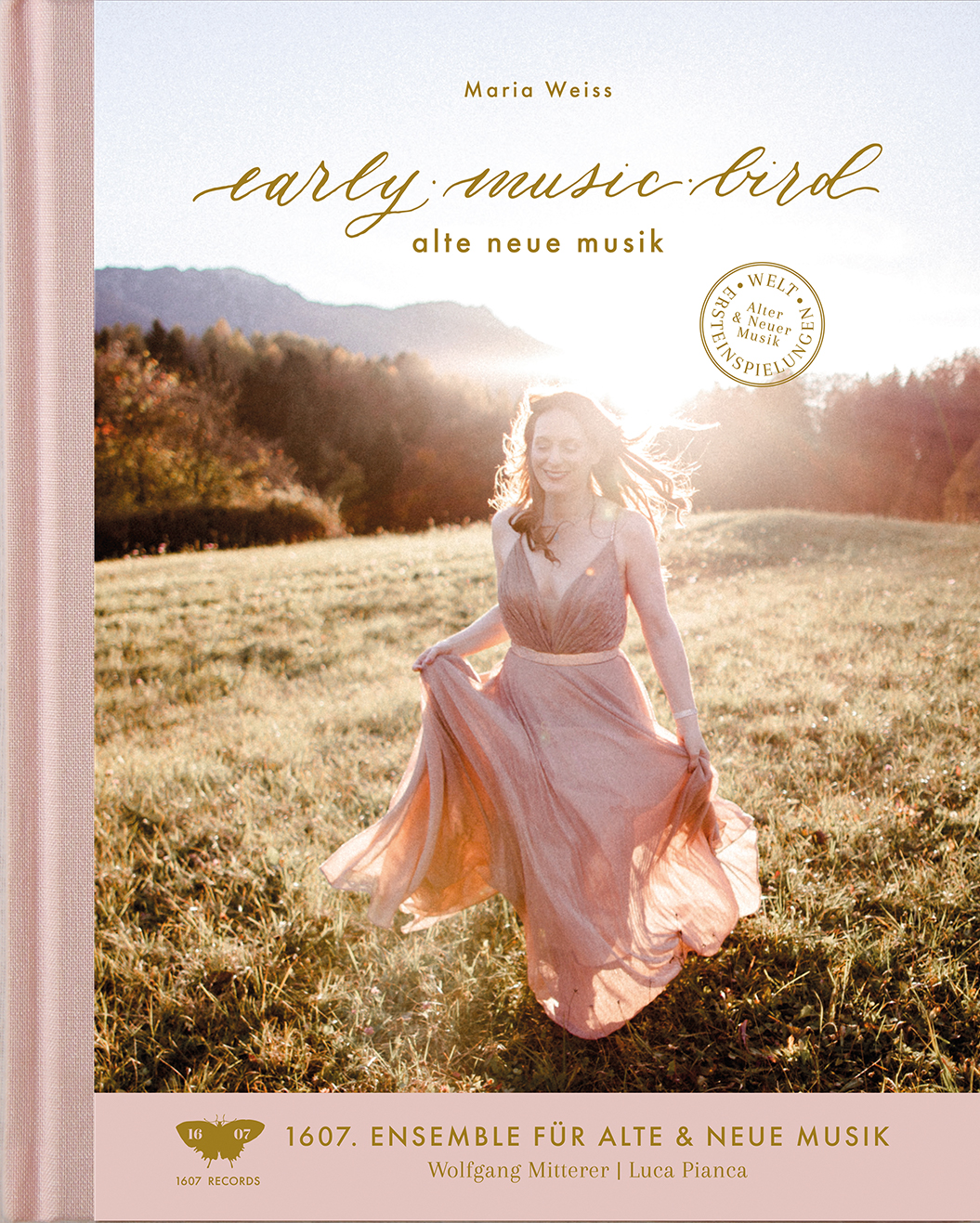Maria Weiss mezzo-soprano, 1607 Ensemble for Early & New Music
67:26
1607 Records (available HERE)
First a disclaimer. When I reviewed the first CD of the Austrian mezzo Maria Weiss – a review that can be read on this site – my contact with her had been purely professional. Since that time we have come better acquainted and today I’m happy to acknowledge Maria as a much-valued friend. Generally, this would result in my refusing to review this CD, which indeed I initially did. However my mind was changed to make an exception in this case, not least for the interest of the contents, which include several first recordings, but more importantly because like the first CD this one has been entirely researched, planned and performed by Maria Weiss on her own label. It is therefore a CD that will get scant notice from the UK press. And while not without flaws it unquestionably deserves, even demands notice.
The most notable aspect is unquestionably the quality of Maria Weiss’s voice. To describe it I cannot do better than repeat my words from the earlier review: ‘Her voice is distinctive, a beautifully burnished and rounded mezzo that at the same time remains fundamentally pure in tone, vibrato being used only sparingly for expressive purpose.’ To which I would add that it is a voice that excels in cantabile writing, Weiss’s ability to sustain long lines with absolute security being one of the special features of her singing, as is her ability to shape such music with the utmost musicality. This is not to say that at the other end of the scale her singing of coloratura lacks agility or flexibility, as the lithe performance of an aria from Vivaldi’s lost opera, La Silvia demonstrates. Incidentally, both the track listing and rather flowery note on this item neglect to mention that the opera is lost, only eight arias surviving.
So it would be (and from experience I can promise is!) possible to simply wallow in the sheer beauty of Weiss’s voice and her wonderful sense of line. But of course singing, especially the singing of Baroque music is about rather more than that. In the review of the earlier CD, I noted that Weiss’s clarity of diction is not all it might be and the same observation is pertinent here. That may at least partially be down to the recording locations in Carinthia, invariably castles or churches with considerable resonance. While Weiss’s ornamentation is tastefully judged and invariably well turned it too often lacks precision and although there are a few trills, there are rather too few, those there are being tentatively sung.
As with the earlier CD, the programme is a highly rewarding one with some real discoveries. As its title suggests the theme is birds and there are a number of typical texts to which birds are introduced allegorically, doves and nightingales much to the fore. But it’s not all birds. Particularly enjoyable (and well suited to Weiss for the reasons cited above) are two beautiful lyrical Francesco Gasparini arias, both first recordings, one from his L’oracolo del Fato (?Vienna, 1709), the other from the fragment Astianatte, Rome, 1719. Another treasure, not this time a first recording, is a lovely lied from J P Krieger’s Die ausgesöhnte Eifersucht (Weissenfels, 1690), a strophic song on a ground bass and here sung by Weiss with languid longing. If there is a caveat about some of the cantabile numbers it is that they are taken fractionally too slowly, or in the most extreme instance, an ariette with horns from Rameau’s Acante et Céphise (Paris, 1751), surely taken at far too leisurely a pace. But both that and the exquisite Michel Lambert air over a ground bass show Weiss has an excellent command of the French style. The Rameau, incidentally, is not as claimed a premiere recording since there is a complete Erato recording of this only recently re-revived opera.
As on the earlier CD, the programme is concluded by two pieces involving electronic music by the Viennese composer Wolfgang Mitterer, one of which is a playful extemporization on the Krieger. But to finish I want to return to what is undoubtedly the best-known music on the disc, Ruggiero’s recitative and aria ‘Mi lusinga il dolce affetto’ from Handel’s Alcina, and specifically the final line of the main section, the words ‘che m’inganni amando ancor’ (that I’m deceived still loving). This provides a supreme example of why Maria Weiss is for me a special artist. The whole, including the passaggi, is shaped and expressed with the greatest musicality and sensitivity to arrive at a ravishing mezza voce on the final word. Such a moment alone offers ample excuse for wanting to recommend the CD to anyone enchanted by the sounds the human voice is capable of making.
Brian Robins
